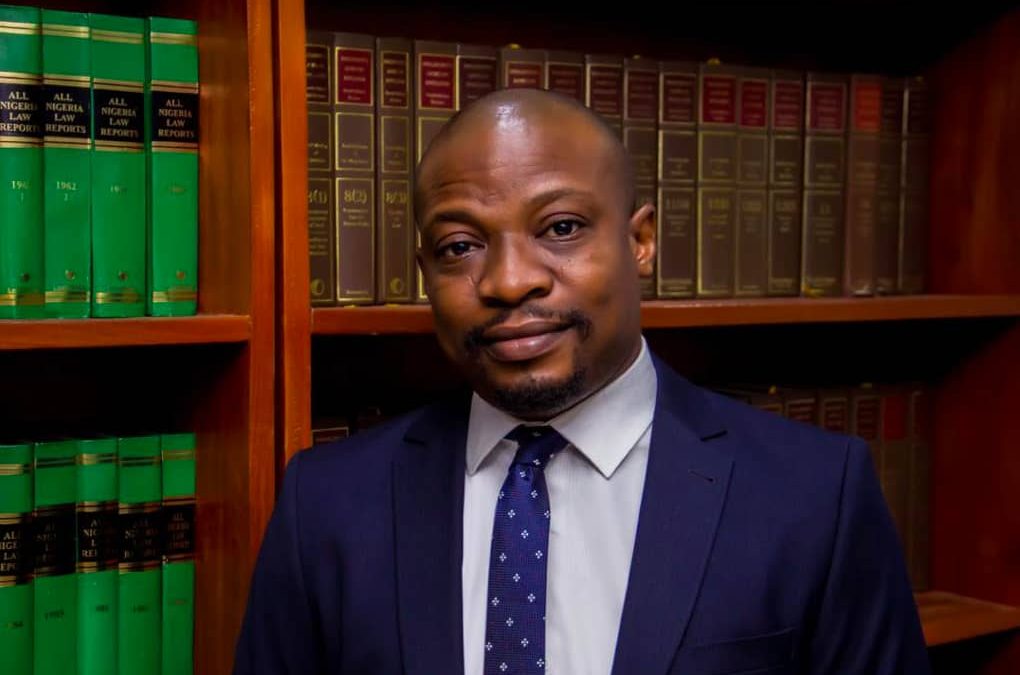
by Legalnaija | Jan 12, 2023 | Uncategorized
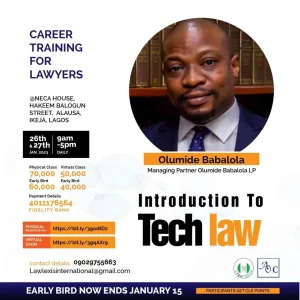
Olumide Babalola Esq is a prolific and consummate digital rights, consumer rights, privacy and data protection lawyer. His rich and diverse digital rights litigation experience spans across all superior courts of records in Nigeria and regional courts in Africa including ECOWAS Community Court of Justice.
He has specifically litigated on Digital Privacy, Cybercrime, Hate Speech, Freedom of Information, Online Freedom of Expression, passage of laws protecting digital rights among others. Olumide is a seasoned Conference speaker at local and international fora. In 2018, he was selected alongside 6 other digital rights lawyers from West Africa to attend the Internet Governance Forum (IGF) in Paris a multi-stakeholder engagement forum and in June 2019, he spoke at the RightsCon (The 8th Annual Summit on Human Rights in the Digital Age) held in Tunis.
Olumide has four published books to his credit: the first is a historical piece on the office of the attorney general of the federation and its occupants in Nigeria; the second being a casebook on Labour and employment law – which work was propelled by the volume of legal opinions (on Nigerian Labour regime especially the decisions of the courts on the peculiar issues) he had to write for his multi-national company on regular basis while the third is another casebook on corporate law and practice. His latest publication – Babalola’s Law Dictionary, is reputed as Nigeria’s first law dictionary (strictly so called).
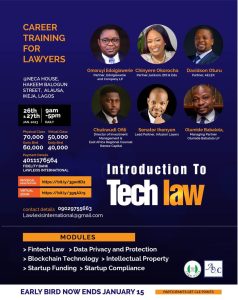
Olumide is the managing partner of Olumide Babalola, LP – his flagship full service law office with particular bias for digital rights, consumer rights litigation, class actions, employment and corporate commercial litigation et al. As a testament to the cutting-edge practice of his law firm, the law firm was in 2016 presented with the prestigious award of “Quality Summit Award” in the city of New York.
The awardee of the “Nigerian Rising Star Award” is a member of the Nigerian Bar Association, Secretary of NBA Lagos Human Rights Committee, British Nigeria Law Forum, Internet Society, Internet Governance Forum Support Association (IGFSA), Chartered Institute of Arbitrators, World Litigation Forum, International Bar Association and International Association of Privacy Practitioners.
To register, please follow any of the appropriate links;
• Physical Session:
Fee: 70,000 Naira
Early Bird: 60,000 Naira (ends 15th January, 2023)
Venue: NECA House, Alausa, Ikeja, Lagos
Reg Link: https://bit.ly/3godtD2
Virtual Session (ZOOM)
Fee: 50,000
Early Bird: 40,000 (ends 15th January, 2023)
Registration Link: https://bit.ly/3gqAXr9
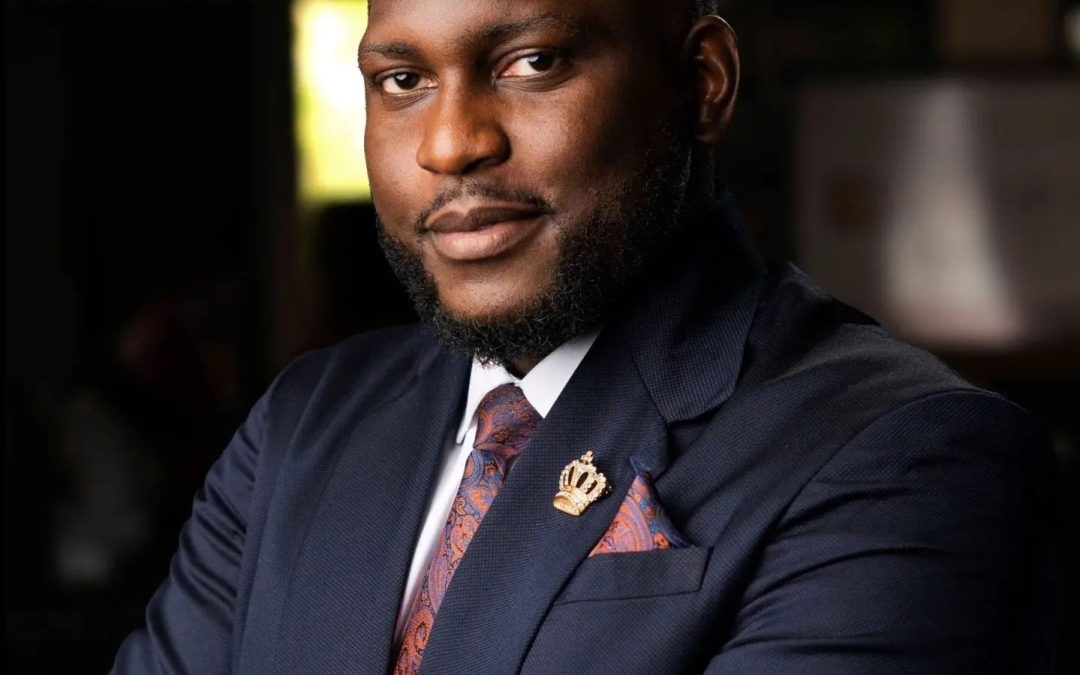
by Legalnaija | Jan 10, 2023 | Uncategorized
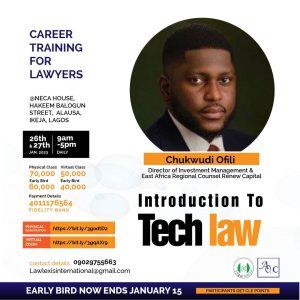
Meet The Faculty At The Introduction To Tech Law Training
Chukwudi “Chudi” Ofili @chudyofili is a licensed attorney in the State of New York and in Nigeria. He is primarily involved in active project pipeline management and deal closing as Renew Capital scales up across the region.
Prior to joining Renew Capital, he was a partner at a commercial law firm in Nigeria and advised high-growth companies and startups on the full spectrum of their legal issues, as well as the private equity and venture capital companies that finance them. He has also advised on international finance and project development deals within Africa.

Chudi has been named a Rising Star Partner and National Leader in Nigeria by the legal directories International Financial Law Review (IFLR) and Who’s Who Legal. His international experience includes stints as a visiting lawyer at Trinity International LLP in London, United Kingdom and as an extern at the Coca-Cola Company in Atlanta, Georgia, United States.
He holds a bachelor of laws from Babcock University in Ilishan-Remo, Ogun State, Nigeria and a master of laws with a concentration in business and finance from the University of Georgia School of Law in Athens, Georgia, United States. He also has a fintech certificate from the INSEAD Business School in Fontainebleau, France.
Looking to advance their skills in Tech Law? Join Chudi and other Members of Faculty at the career training for lawyers on Tech Law.
To register see information below;
Physical Session: 70,000 Naira
Early Bird: 60,000 Naira
Reg Link: bit.ly/3godtD2
Virtual Session: 50,000
Early Bird: 40,000
Reg Link: bit.ly/3gqAXr9
#lawlexis #careertrainingforlawyers #techlaw #nigerianbarassociation

by Legalnaija | Dec 30, 2022 | Uncategorized
The year 2022 has come and gone, and yes it was an exciting year with its own fair share of highs and lows. One beautiful thing about the new year is the hope and excitement it comes with. As a lawyer, I am sure you have lots of plans for your career in the year 2023, and here are a few tips to help you achieve your goals only if you practice them.
- Write More
Writing and publishing articles or short legal tips for public consumption has helped a lot of lawyers attract clients. Writing articles establishes you as an authority and thought leader in your area of practice, thereby earning you the trust and confidence of your clients.On the Legalnaija Blawg, we publish law articles free and if you will like us to share your articles with our community, you can simply share them via email along with a short bio and portrait to hello@legalnaija.com
- Use the internet
The internet is an invaluable resource for individuals and businesses. Potential clients use the internet as one of their first points of call when searching for legal information, and it is important that they find you in their search. Some of the many ways you can take advantage of the internet include using social media to share content, and host community discussions; signing up to a Lawyers Directory, and building a brand.
- Attend professional trainings
Professional trainings are an incredible way to improve your skills as a lawyer. It not only updates you with current trends in your area of practice but also provides an opportunity to engage with experts in your area of practice, engagements which can easily lead to mentorships. An example of a good professional training program is the Introduction To Tech Law training for lawyers scheduled to hold in January, 2023.
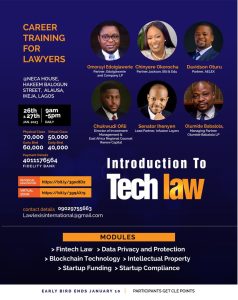
Career Training For Lawyers
- Perfect your skill
Professional development is mandatory for lawyers, and improving your skills makes you more valuable to your firm, and clients. Reading books in your area of practice and building a good law library is a very important to becoming a successful lawyer. A good place to get law books at affordable prices is the Lawyers online bookstore.
- Collaborate More
Collaboration is the new competition, and if you want to go far in 2023, you should be thinking about collaborating with communities within and outside the legal profession. It could be your school association, religious group, social clubs or NGOs, but which ever you choose, you certainly cannot go wrong.
If you find the tips and tools in this article useful, don’t hesitate to share them with your friends and colleagues by using the share button.
@legalnaija

by Legalnaija | Dec 13, 2022 | Uncategorized

Monday, the 13th of June, 2022 saw the National Information Technology Development Agency release a preview copy of the Code of Practice for Interactive Computer Service Platforms/Internet Intermediaries. According to them, the Draft was created in conjunction with the Nigerian Broadcasting Corporation and the Nigerian Communications Commission. With this draft, they intend to give the general Nigerian populace an opportunity to review and contribute despite the copious absence of a channel for feedback until the 17th of July.
In a recently booming tech ecosystem like Nigeria’s, one which has driven serial international investors and created multiple employment thereby dousing the unemployment inferno to a very large extent, an average citizen is left wondering what the agenda behind this policy could be. This work of the draftsman that could determine their employment status and infringe on their indivisible, inalienable rights simultaneously.
As expected, several knowledgeable and experienced policy experts have publicly expressed their dissatisfaction with this guiding policy document with most pointing out now visibly infamous paragraphs and sections contained therein. This work can be said to be motivated by a huddle call with other colleagues who equally advise these companies and the Nigerian populace who keep themselves happy with content posted on these platforms. Both very worried at the far-reaching legal implications of this draft Code of Practice.
Whilst this article will examine the advantageous parts of this draft, it will not only make a case for the infractions but expose an aspect which goes to the deep root of this intended policy document.
Whither Revenge Porn and Nudity?
Under Part II(2), all Platforms are mandated to inform their users through terms of service not to share content harmful to a child; encourages money laundering, exploiting a child, infringes the subsisting intellectual property of another or promotes terrorism. This seems fair enough in light of the misuse of social media by others who though exercising their fundamental human rights, overreach into the rights of others.
This seems to draw a thick line between where an individual rights stop and where another’s begin. It indeed, is a welcome development.
Platforms were mandated under part IV to delete within 24 hours prohibited materials objectionable on grounds of morality and public interest. This leads us to the age old jurisprudential debate of the line between morality and the law. The Nigerian state as it stands today follows codified law and under no condition shall a person suffer for not written. Nulla poema (crimen) sine lege, the Latin legal maxim which guides the law shows the spirit and nature of the law. In light of the fact that human beings are diverse and the world is dynamic, it is expected that the question of what is moral will be relative.
Are the Platforms expected to gauge what is moral or immoral on behalf of lawmakers and law interpreters?
Can a Platform be held responsible for a crime not known to law?
What exactly is objectionable on grounds of immorality?
In an interview, the Agency’s Legal Services and Board Matters Unit had contended that the inclusion of ‘morality’ is to ensure that whatever goes out is in line with Nigerian local laws. This is rather obscure in nature and evasive.
It is believed that the draft Code of Practice will do better.
Is National Security Greater than Fundamental Human Rights?
The movement for Fundamental Human Rights need no introduction as enough has been said and is continuously being said in order to ensure that the inalienable, indivisible rights of every human being is not taken away from them under any pretext. The Nigerian Constitution, in line with international best practices have adopted fundamental human rights for its citizens and this is seen in Sections 33 through 42 under Chapter IV of the laws of the land.
In Section 37, the Constitution expressly states that the privacy of citizens, their homes, correspondence, telephone conversations, telegraphic communications is protected. Sections 38 through 40 then reiterate that every person shall be entitled to their fundamental rights to freedom of thoughts, conscience and religion; freedom of expression and freedom of association.
All four rights and freedoms are very fundamental to Nigerian Citizens’ usage of these Platforms. There are cases where in exercise of their rights, they also advocate for the continuous protection of those rights. .
In October 2020, Twitter was agog with the EndSars protest which was an advocacy for the protection of the fundamental right to life of every citizen who are prone to police brutality merely by breathing the air in Nigeria. This movement marked a reawakening of conscience and a realization that leaders had to do better. It also put them under a spyglass of scrutiny which they have not been able to avoid till date.
Section 45(1)(a) and (b) however states that where a law reasonably justifiable in a democratic society is enacted in the interest of defense or the public; or for the purpose of protecting the rights and freedoms of other persons, Sections 37 through to Section 41 shall not invalidate such law.

REGISTER NOW
Omnibus Terms: Who is Who? and What is What?
In some paragraphs of this draft Code of Practice, the use of ambiguous words is observed to the extent that upon first instance, one is left wondering whether it is deliberate or a mere oversight on the part of the Draftsman.
The word ‘Child’ in the Definition part is said to be subject to definition by Nigerian Law however it i submitted that Nigerian Law as of today is at variance expressly and by inference as it relates to who a child is. Though the Child Rights Act had been enacted in 2003 by the Federal arm, states like Kano have done a total overhaul with the inputs of Ulamas Islamic Scholars and Society Organizations in order to fit into the Sharia Law acceptable to their state which strictly speaking, they can do in a federal system of government.
The Corporate and Allied Matters Act of 2020 by inference defines a child as any person under 18 by virtue of Section 106. This is also the position of Section 29(4) of the Constitution of the Federal Republic of Nigeria 1999 (as amended). The Definition part should have stated expressly what Nigerian Law will define the age of majority even as some may argue that the Constitution remains the grundnomm, it looks like an area prone to judicial intervention when litigation arises.
Still on ambiguity, Part IV places the liability of removal of ‘prohibited materials’ from Platforms within 24 hours of notice from the government on these Interactive Computer Service Platforms.
The definition of ‘prohibited materials’ is then heavily placed on all applicable Nigerian Laws including but not limited to the eleven stated in the draft namely:
- Nigerian Communications Act;
- National Broadcasting Commission Act;
- Nigeria Broadcasting Code;
- Cybercrimes (Prohibition, Prevention, etc.) 2015;
- Advance Fee Fraud and other Fraud Related Offences Act 2006;
- Nigeria Data Protection Regulation 2019;
- Advertising Practitioners Act 2004;
- Sales Promotions of Nigerian Code of Advertising Practice Sales Promotion and other Right/Restrictions on practice Act 2004.
- Terrorism Prevention Amendment Act 2022 10. NCC Consumer Code of Practice Regulations 2017
- Federal Competition and Consumer Protection Act (FCCPA) 2018.
The effect of which is not only a repetition of these laws but a ticking bomb as a misnomer or misinterpretation of any of these laws may lead to content deletion or even prosecution as it stands. This could also mean that any of these laws may be reviewed from time to time in order to accommodate more ‘prohibited materials’ which is a danger to the constitutionally exhibited right to freedom of speech and right to freedom of thoughts, conscience and religion of every citizen of the country as it were.
What netizens should be thankful for, however, is that it is a draft and it is subject to review. So we are told.
Exercise of Regulatory Powers over Platforms: A threat to Corporate Governance
The nature of these Interactive Computer Service Platforms is quite unique and rather unlike an average company regulated by a regulatory agency or legal frameworks peculiar to its objects. Unlike a construction company or a renewable energy company, these platforms do not stricto sensu, need the license or express permission of any agency in Nigeria to operate as sanctions cannot be used against them effectively. This shall be explained in the next paragraph.
In an instance where a Fintech company is a payment platform, they require a Payment Service Platform license from the Securities and Exchange Commission in order to operate, the default of which will see the Commission see to the closure of such company’s registered address until the needful is done subject to the intervention of the Investment and Securities Tribunal or even the Federal High Court as the case may be.
This shows a degree of control and demonstrable sanctions in a regulatory relationship of suzerainty. This is not the case with Interactive Computer Service Platforms because they do not have bank accounts in the country upon which a lien can be placed or access restricted as in the earlier instance, some do not even have offices in continent while a vast majority of them, if not all, are not incorporated in the country. The nature of Facebook, Twitter, Tiktok, Instagram etcetera is very unique because they are free-to-air.
The draft under part II mandates these multinational Platforms operating globally to carry our risk assessment of every content to determine whether such content is harmful. The practicability of this on a large service platform is quite interesting.
As it stands, even the veil of these companies cannot be lifted in Nigeria to uncover fraud or illegal purposes because they have not made themselves subject to Nigerian Corporate Law and they may choose not to without bearing any sanctions, an example of which is the now infamous Twitter ban which even though was ongoing, Netizens found their way back to enjoy the microblogging platform.
The Corporate and Allied Matters Act of 2020 remains the foremost regulatory framework for the administration of companies in Nigeria as of today alongside Codes of Corporate Governance. This law recognizes and respect that directors, members, persons with significant control should control and administer the company going by the guidelines of regulatory bodies peculiar to their field. It is submitted that regulatory bodies are not supposed to meddle with the day-to-day administration of the company or the object of the company as it goes against corporate governance to have a regulatory agency butt in from time to time on the basis of an ambiguous Code of Practice.
It seems to me that despite claims of the National Information Technology Development Agency that it sought the input of these Platforms, the latter should have, through their policy experts been more involved in the drafting process in order to create an all-inclusive, mutually beneficial and widely accepted policy especially with little degree of control the Agency at present realistically has over them.
An Academic Adventure: The Case for a Punitive Code of Practice
Part VI of this draft Code of Practice explains that non compliance with the Code will be deemed a breach of the National Information Technology Development Agency Act of 2007.
The combined understanding of Section 17 and Section 18 of the Act is to the effect that any person or corporate body who acts at variance with the act commits an offence punishable by fine and imprisonment which does not preclude the payment of levy to the Federal Internal Revenue Service. Asides from the fact that the Act itself does not state where the matter will be heard in the case of a company in default in compliance with the fundamental right to fair hearing entrenched in Section 36 of the Constitution, the nature of Codes generally is that of guidance. Its force in law, I humbly submit, is that which is persuasive in nature.
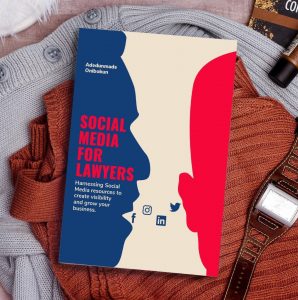
Click To Order
Codes are not meant to be protocols to an Act of the National Assembly neither are they meant to be punitive by resting on an already existing Act to derive its force of law. That is the difference between an Act and a Code.
In the instance of the Corporate and Allied Matters Act, the Banks and other Financial institutions Act, the Investments and Securities Act and the Central Bank of Nigeria Act ; all acts that regulate Public Companies, you find that such Codes released by by some of the agencies created by these acts are not in nature.
The Code of Corporate Governance for Public Companies released by the Securities and Exchange Commission in 1.3 for instance, states that it is not meant to be a rigid set of rules but to facilitate sound corporate practices.
The Code of Corporate Governance for Banks and Discount Houses in the preamble circular signed by the then Director of Financial Policy and Regulations Department states that it aims to align the Nigerian ecosystem with international best practices.
It seems as though the National Information Technology Development Agency knows that it cannot frontload the provisions of the proposed National Information Technology Development Agency Bill of 2022 through the Code of Practice. Even if that would happen, the new Act should lay the foundation for the new Code and not the other way around. It raises a serious question of law.
Under the 2007 act, the Agency does not have that much power however the fresh bill increase their functions to 24 from 14 thereby overlapping and arrogating other regulatory agencies operating within the same space such as the Computer Professionals Registration Council of Nigeria, Galaxy Backbone, Office of the National Security Adviser, National Universities Commission and so on.
Sections 6, 13, 20, 21 and 22 of the Bill will enable the Agency fix classes of licenses, impose administrative sanctions and enter premises in order to detain persons or companies that contravene the Act.
The classes of lines are: Product License, Service Provider License and Platform Provider License. With the analysis of the proposed Bill, one can easily see that the Code of Practice is intended to announce the appearance as forerunner in anticipation of a more heavily worded and bullish Act.
It is therefore a stellar innovation by the Agency to release a draft Code punitive in nature, ambiguous in wording and that which criminalizes acts not known to law.
 Mosopefoluwa Fayeun is a corporate/commercial lawyer and management consultant with Albert and Abraham LLP where she regularly advises with regards strategy and corporate governance.
Mosopefoluwa Fayeun is a corporate/commercial lawyer and management consultant with Albert and Abraham LLP where she regularly advises with regards strategy and corporate governance.
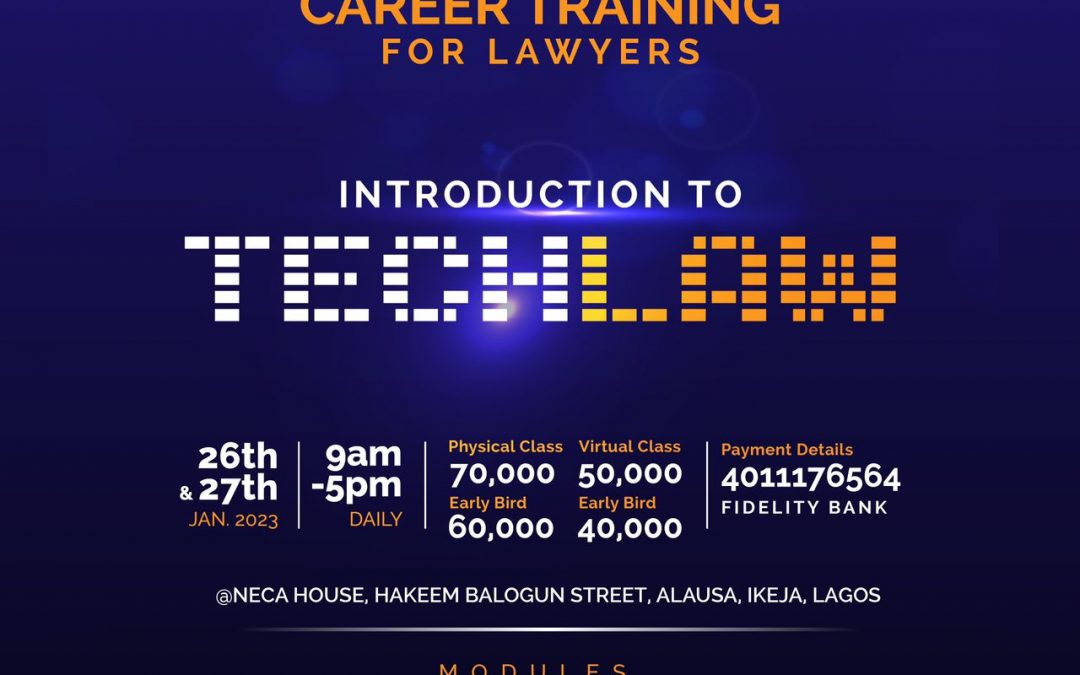
by Legalnaija | Dec 8, 2022 | Uncategorized

As of August 2022, 107 Nigerian startups have raised funding accounting for around one-third of the continent’s funded startups so far this year. The report noted that the country’s running total for 2022 stands at $747.9 million closing in on the annual record total from last year, put at $793.8 million. – Premium Times. Technology law is the body of law that governs the use of technology and Lawlexis has put together a stellar faculty to help train and develop the capacity of Nigerian lawyers in Tech Law. Details of the training include:
Theme: Introduction To Tech Law
Modules
– Fintech Law
– Data Privacy and Protection Law
– Blockchain Technology
– Intellectual Property Law
– Startup Funding
– Startup Compliance
Date : 26th & 27th January, 2023
Time: 9am – 5pm daily
Members of Faculty:
– Chinyere Okorocha, Partner,Jackson, Etti & Edu
– Olumide Babalola, Esq., MCIArb (UK), Managing Partner, Olumide Babalola LP
– Senator Ihenyen, Lead Partner, Infusion Lawyers
– Omoruyi Edoigiawerie, Partner, Edoigiawerie and Company LP
– Chukwudi Ofili, Director of Investment Management & East Africa Regional Counsel Renew Capital
– Davidson Oturu, Partner, AELEX
Fee: 70,000 Naira
Early Bird: 60,000 Naira (ends 10th January, 2023)
Venue: NECA House, Alausa, Ikeja, Lagos
Reg Link: https://bit.ly/3godtD2
Fee: 50,000
Early Bird: 40,000 (ends 10th January, 2023)
Registration Link: https://bit.ly/3gqAXr9
Please note that participants will be issued CLE (Continuous Learning Education) points, for their participation by the NBA Institute of Continuous Learning Education, as well as Certificates of Participation. Persons who should attend include lawyers at all levels. For enquiries, please contact: Lawlexis – lawlexisinternational@gmail.com or 09029755663
Get 10% Off When Using The Voucher Code: LEGAL9JA

by Legalnaija | Nov 15, 2022 | Uncategorized
Introduction
Companies in the tech industry are often presented with mundane problems: that of what do we do with pending and imminent litigation? How to derive positive result from one? Whether protracted litigation or litigation generally may be prevented or preemptively resolved? How value assessment of concluded litigation may be used to identify potential areas of opportunity to mitigate risk?
This paper offers answers to these questions and attempts to raise the reader’s consciousness toward the importance of these issues.
Common Areas Where Disputes Arise
Labor and Employment: keeping valued employees and disengaging unsuitable employees usually cause as much difficulty as recruiting. Moreso all of these processes have avoidable landmines beginning as early as recruitment. Firstly, let’s bear in mind that although employment traditionally takes two forms, namely: contract of service[1] and contract for service[2], both having distinct legal and operational implications. For tech companies, in the spirit of innovation and corporate values-driven eye for efficiency at affordable cost, introductions like work-for-equity[3] employment arrangement are being adopted and there is no gainsaying that this helps micro startups through their early periods to fruition. However, this employment arrangement presents risks far above what traditional employments do.
Structuring and Investment: the tendencies for disputes can begin right from the incubation of and sharing an idea, through forming a company, creating a product and successfully attracting investment. Some of these disputes arise between founders; founders and prospective investors; founders and investors; founders and regulators. The subject of such disputes includes unauthorized disclosure or use of confidential information; shareholding and control; product; non-compliance with extant laws and relevant regulations.
Intellectual Property and Confidentiality: in an industry such as tech that uses peculiarly volatile but highly valuable and sensitive products, the risk of intellectual property breach is not only high but potentially more damaging. This poses one of the major threats to the industry and of course a major area where disputes often arise.
Contracts: contracts in tech, like other commercial contracts often require interpretation, and enforcement where there is breach of some or all obligations, it is therefore an area where concrete litigation preventive or remedial (against reactive) measures should be deployed timeously.
Payment Services, Loans and Recovery: from experience, this area of fintech seems to be the most volatile target for internet fraud or phishing which usually turns out to be untraceable and when traceable through onward transfer or payment destinations, the mechanisms required to secure recovery are too expensive or uneconomical. Equally, loan and debt recovery are other areas where dispute arises more often than it does in payment service.
Data: through regulatory compliance, management members in tech companies have become familiar with data protection laws, their obligations and the importance of adherence. Nevertheless, this area still remains a crucial area where disputes often arise between the company and customers or third parties and between the company and regulators.
Other areas include: actions of the board of directors and documentation; methods of marketing and distribution; real estate planning; insurance, health care and pension coverage; securities law compliance; product liability etc.
Preventive Measures
While there is precautionary cover by offered by lawyers during structuring, contracts stages as well as regulatory compliance, the cover usually falls short in forestalling all threats of litigation. In fact, I daresay that there are disputes that arise regardless of how perfectly a company is structured or its contracts negotiated, drafted and reviewed, some disputes also appear to be unforeseeable or inevitable.
While some of these problems or disputes may be prevented through what we have devised as dispute resolution risks-based legal audit, others require specialized remedial measures to achieve values-based results through effective dispute resolution mechanisms, many of which are already available but largely untapped.
What is legal audit? Generally, a legal audit focuses on a single aspect of a company’s business and analyzes the legal position. A legal audit ensures that no hidden risks exist within a company. The problems a legal audit identify are those that put the company at risk for penalties and litigation. While a legal audit performs an in-depth analysis of one area of a company, it is not so intrusive as to interfere with a company’s day-to-day operations.
In the form of legal audit that this paper proposes, instead of focusing on one specific area for a company’s operation, it will focus on all or high-risk aspects with the objectives of assessing impending litigation risk, the degree of possible exposure and outlining action steps to forestall litigation and/or claims.
To conclude, let’s consider an example in the area of labor, this legal audit will focus on the need to ensure cover for predictable areas of disputes from regularization of recruitment documentation; developing and adherence to company policies; developing and periodically updating disciplinary and termination policies in line with extant laws and contract; proactive action steps to settle with employees who may raise valid claims for unlawful termination, dismissal or other causes.
Remedial Measures
Here, this paper presents to the reader the idea of effectively reducing protraction in courtroom litigation through effective case-flow and case management, effective judgment enforcement and adoption of innovative trends.
With respect to debt and loan recovery, innovative trends like the establishment of the small claims court brought about by the Lagos State Judiciary which, now serves as model for other states provides a giant leap in our judicial process as well as viable mechanism through which fintech companies may recover loans and debt within the 60 days prescribed by the practice direction for small claims court. A small claims court is created with jurisdiction to entertain simple and liquidated debt recovery claims not exceeding N5, 000,000.00 and counter claim not exceeding N10, 000,000.00. It is time and cost saving because there is quick and efficient resolution of disputes within 60 days of filing. There is also limited adjournment which results in fast-track proceedings. In practice, courts have an average consolidated time to disposition of 66 days per case.
Upon completion of litigation, it is important to encourage and accept proposition from lawyers to carry out value assessment of concluded litigation which may be used to identify potential areas of opportunity to mitigate risk and set action steps that can provide cover for your company from exposure and depleting viability.
Suitable alternative dispute resolution (ADR) mechanisms: this is another viable solution to mitigating lengthy and protracted court procedures. The methods of ADR include Negotiation; Mediation; Conciliation; Arbitration.
Some courts have created ADR Centers to ease out of court settlements and promote the adoption of alternative judicial mechanisms. These courts include: National Industrial Court–ADR Center; Lagos State High Court – Lagos Multi-Door Courthouse (LMDC) and The Federal High Court.
Finally, it is imperative and in line with the objectives of this paper to highlight the effects of ADR obligations created by contract, the extent of this obligation and the need to only insert ADR clauses that best suit the type of contracts because one size does not in fact fit all. From experience, parties to contracts have hit stumbling blocks as a result of the mandatory arbitration clause in their contract for example. This is because although Arbitration is highly effective in commercial disputes and in disputes generally, unlike other methods of ADR it is not cost-effective, therefore it is not suitable for contracts where for example, the parties are startup companies or founders, or contracts whose subject involve low monetary value.
What is the effect of an ADR clause in a contract?
When a contract has an ADR clause, generally, when a dispute arises it places an obligation on the parties to such contract to firstly explore the method of ADR specified in the contract in the order that the contract prescribes, before proceeding to court if a resolution is not reached.
What happens when one party decides not to participate in order to frustrate the other party?
The law provides that it is enough if the aggrieved party notifies the defaulting party of his intention to explore ADR, where the defaulting fails to take any step, the aggrieved party may proceed by submitting such dispute to the court without falling in breach of the ADR clause.
Conclusion
The questions examined in this paper which typify the challenges being faced by tech companies and the proposals offered underscore the importance of embracing a proactive approach to prevent avoidable litigation and adopt effective and values-based dispute resolution processes where litigation is unavoidable or beneficial.
[1] A Contract of Service is an agreement between an employer and an employee
[2] Contract For Service is a contract where instead of an employer-employee relationship, there is a client-contractor type of relationship
[3] Working for equity means a company compensates employees with shares in a company

by Legalnaija | Nov 5, 2022 | Uncategorized
From the 4th – 25th of November, 2022, you can get up to 70% discount when you order any one of the over 80 law textbooks or journals on the legalnaija online bookstore.
Use this opportunity to upgrade your skill, update your law library and advance your legal career. Delivery is between 1 – 5 working days, and we offer global shipping. Visit our website to start shopping now https://legalnaija.com/shop
Lara from Legalnaija.
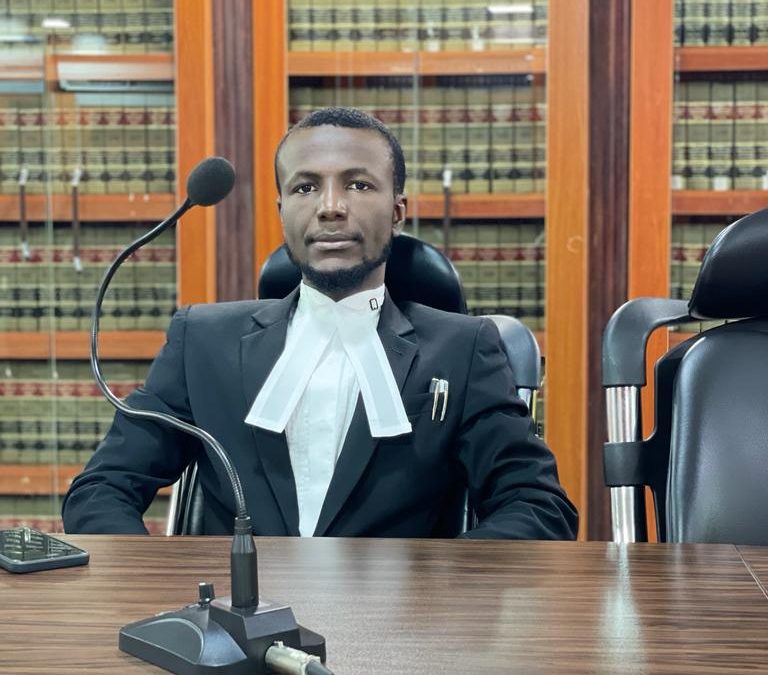
by Legalnaija | Nov 1, 2022 | Uncategorized
The Absence Of An Oath Clause In A Sworn Declaration: How Fatal?[1]
INTRODUCTION
At one point or the other in one’s legal practice in Nigeria, there is the likelihood of haven been faced with the challenge of wriggling out of a situation where due to inadvertence of counsel, the oath clause is omitted in an affidavit or a witness statement on oath to be used in court. This error is sometimes discovered only after the affidavit has been filed and the case is to come up for hearing. While many litigators who find themselves in these unpleasant situations simply blame the omission on their secretaries, the junior lawyers in the firm bear the brunt in others. This article therefore interrogates the absence of an oath clause in a sworn declaration vis-à-vis the provisions of Oaths Act, LFN 2004, conflicting judicial interpretations of the Court of Appeal and until the recent intervention by the Supreme Court of Nigeria.
SWORN DECLARATIONS AND THE REQUIREMENT OF AN OATH CLAUSE.
In the trial of cases in Nigeria, the Rules of the various courts provide that evidence may be adduced either by filing an affidavit, as in suits commenced by originating summons/motions procedure or witness statements on oath where the suit is commenced by a writ of summons. Whichever of these procedures is adopted, a written declaration on oath is required as an integral part of the frontloaded processes (or interlocutory applications) before the Court, prior to the date set down for hearing. In defining an affidavit, the court held in the case of Onujabe v. Idris[2] as follows:
“An affidavit is a statement of facts or declaration made either on oath or affirmation before an authorized person. The averments in an affidavit are admissible as a fact until disproved because the averments are sworn before a commissioner for oaths. The life of an affidavit is the declaration on oath. What makes that piece of paper an affidavit competent to support the motion on notice is the attestation or swearing before the Commissioner for oaths. Once the document is not sworn to, it is a mere piece of paper not an affidavit. Therefore without oath there is no affidavit.”
A distinguishing feature of an affidavit therefore, that sets it apart from every other declaration is that it is made on oath before a person authorized to administer oaths. Persons authorized to administer oaths include the Chief Justice of Nigeria, Presidents and Justices of the Supreme Court and Court of Appeal, Judges of the Federal High Court, Notaries Public and Commissioners for oaths.[3]
Essentially, affidavits used in judicial proceedings constitute and forms part of the body of evidence led in a case.[4] An affidavit therefore, by the provision of the First Schedule to the Oaths Act, and usual practice, concludes with a paragraph that reads:
“I do solemnly and sincerely declare that I make the solemn declaration conscientiously, believing same to be true and by virtue of the provisions of the Oaths Act.”
It is therefore considered a settled position of the law that a sworn declaration must contain the above words for it to be valid and admissible in evidence. The absence of the words, before now, is seen as a fundamental defect as to the substance and not form, curable under Section 4 (2) (b) and (c) of the Oaths Act or Section 113 of the Evidence Act, 2011. In the case of GTB v. ABIODUN[5], the Court of Appeal per PAUL OBI ELECHI, JCA held:
“As stated earlier in the course of this judgment, any written statement which does not bear the 1st schedule to Section 13 of the Oath Act, can not be said to be a written statement on oath. It is this vital aspect of the oath that is missing in the written statement of the Respondent’s sole witness in the present appeal. Non compliance with the provisions of the Oaths Act is a breach of the Oath Act. The consequence is that the entire statement of the Respondent sole witness is left bare. The Rules of Court are not made for fun, they are made to be obeyed. See: Hard v. Hact (1990) 1 NWLR (pt 126) 276, Tom Ikimi v. Godwin Omamnli (1995) 3 NWLR (pt 383), Ibrahim v. Col Cletus Emein & Ors (1996) 2 NWLR (pt 430) 322, Tehat A.O. Sule v. Nigeria Cocoa Board (1985) All NLR 257, Odu v. Jolaoso (2002) 37 WRN 115.”

Click To Order
Similarly, in the latter case of ANENE v. ALABI & ANOR,[6] it was held Per JOSEPH EYO EKANEM, JCA as follows:
“…What is the effect of the absence of the oath? Section13 of the Oaths Act is worded in mandatory terms as it uses the word “shall” which generally speaking is a term of command that implies a mandate. The implication is that an oath is lawful if it is taken before the person set out therein and is in the form set out in the First Schedule to the Act. The converse is that an oath is not lawful if it is not taken before the specified person and in the form set out in the said Schedule. Where the form of the oath set out in the said Schedule is completely absent, there is no affidavit… At page 526, Bage, JCA, as he then was, opined that: “Any written statement which does not bear the First Schedule to Section 13 of the Act, cannot be said to be a written statement on oath. It is only when the declaration of the oath is made that the identity of the maker of the statement can be ascertained. It also serves as to the verification as truth of the statement made therein.” See also GE INTERNATIONAL OPERATION LTD v. Q-OIL AND GAS SERVICES (2015) 1 NWLR (PT. 1440) 244, 270 where Eko, JCA, as he then was, opined that: “In law and common parlance, a written statement that its maker swears to the truth thereof is an affidavit: see Oxford Advanced Learner’s Dictionary. According to Black’s Law Dictionary, 7th Edition a deposition is a witness’s out-of-Court testimony that is reduced into writing for use in Court. It becomes an affidavit if the deponent swears to an oath the declarations made therein are the truth of the matter. By the oath the out-of-Court statement in writing becomes a testimony. It is the oath that gives validity to deposition as a testimony… without the oath, the deposition or written declarations on a piece of paper is a mere piece of paper. The oath makes written declarations or depositions on a piece of paper an affidavit.” Counsel for the 1st respondent argued that the defect in the affidavit was cured by Section 113 of the Evidence Act which provides that: “The Court may permit an affidavit to be used, notwithstanding that it is defective in form according to this Act, if the Court is satisfied that it has been sworn before a person duly authorized.” ?The trial Court held that the affidavit was worthy of being used as the defect therein was cured by Section 113 of the Evidence Act especially as it was sworn before an authorized person. With all due respect, I do not agree with the trial Court. This is because the defect in the affidavit is not a defect in form; rather, it is a total absence of substance and form in that the statement in the First Schedule is completely absent, thus leaving the affidavit with nothing to be cured. The provision of Section 113 of the Evidence Act is intended to cure formal defects and not substantial defects as in this instance. In OBUMNEKE v. SYLVESTER (2010) ALL FWLR (PT. 506) 1945,1959-1960, Alagoa, JCA, as he then was, opined as follows: “Thus, every oath to be legitimate must comply with the provisions of the Oath Act, Cap. 333, Laws of the Federation and the First Schedule thereto. Where there is no statement in an oath stating that it is made solemnly, conscientiously believing the contents to be true and correct by virtue of the Oaths Act, it is not an oath or affidavit properly so called and the signature of the Commissioner for Oaths cannot remedy the defect… Failure to comply does not render the document defective in form but in substance and liable to be struck out.” Order 5 Rules 1, 2 and 3 of the Edo State High Court (Civil Procedure) Rules, 2012, cannot serve as a cure for the fatal defect. The provisions make non-compliance with the Rules an irregularity which does not nullify proceedings. Being rules of Court, it cannot be used to cure a breach of an Act of the National Assembly which ranks much higher than it in the hierarchy of legislation. The affidavit in this matter ought to have been struck out by the trial Court for being incompetent.”
By the pronouncements of the various divisions of the Court of Appeal in the above decisions, it is apparent that the Court refused the use of an affidavit and witness statement on oath because they did not contain the oaths clause as prescribed by Section 13 of the Oaths Act.
However, the same Court of Appeal sought to make a distinction in the case of UDUMA v. ARUNSI[7], where it held as follows:
“There is a distinction between affidavit evidence in procedure begun by originating summons as against statement of witnesses on oath in an election proceeding or proceedings begun by writ. In respect of the latter scenario, where the written statement is to be adopted again on oath by the maker before his cross-examination on it, whatever defect in the original oath in respect of the witness statement has been cured by the second oath made in court before the judex prior to the adoption of the witness statement by the maker and his subsequent cross-examination. [Udeagha v. Omegara (2010) 11 NWLR(Pt. 1204) 168 referred to; Onyejiocha v. Maduako (unreported) Appeals Nos. CA/EPT/54/2008 and CA/EPT/54A/2008 of 14/7/2007 departed from.]”
Similarly, in the case of STANBIC IBTC BANK v. LONGTERM GLOBAL CAPITAL LTD & ORS[8], the Court of Appeal per OBANDE FESTUS OGBUINYA, JCA held as follows:
“The focus of the appellant’s complaint is that the oath does not contain the statutory declaration/conclusion statement: “I do solemnly and sincerely declare that I make this solemn declaration conscientiously believing same to be true in accordance with the Oaths Law”. The appellant persisted that the statutory declaration, as enjoined by Section 11 of the Oaths Law, is mandatory and its absence rendered the oath incompetent. I have, in a bid to pacify the law, visited the record at the abode of the CW1’s Oath which occupies pages 21 – 33, volume 1, of the record, I have subjected the 40-paragraph oath to a merciless scrutiny. Unarguably, the oath, at its twilight, is void of the conclusion statement outlined above. The idea of offering evidence by dint of written statement on oath is a budding/green regime in adjudication. It is a method which grants witnesses the liberty to testify by deposition. Deposition signifies “a statement of a witness made under oath out of Court… Depositions are all matters of procedure as they are adjectival in nature and content”, see Buhari v. INEC (2008) 19 NWLR (Pt. 1120) 246 at 377 and 378, per Tobi, JSC. Indubitably, the admissibility of evidence, of all species, is regulated by the Evidence Act. In Buhari v. INEC (supra), the contest circled around the validity and admissibility of oaths/depositions of witnesses. Tobi, JSC, incisively, outlined four instances that will make an oath inadmissible, namely: if it is sworn before (a) a person on whose behalf the same is offered, (b) his legal practitioner, (c) a partner, (d) a clerk of his legal practitioner. It flows from this ex cathedra authority, a written statement on oath will be inadmissible if it is afflicted with any of the four negative elements adumbrated above. It is not in doubt that the oath of the CW1, which is sought to be expelled, is not plagued by any of these negative elements as to drain it of its validity and admissibility. That is not all. The selfsame Oaths Law makes allowance for omission or irregularity as to oath under Section 4 thereof. In Section 4(2) (b) and (c), it provides: (2) No irregularity in the form in which an oath is administered or taken shall – (b) invalidate proceedings in any Court; or (c) render inadmissible evidence in or in respect of which an irregularity took place in any proceedings. ?It is a recognized canon of interpretation of statutes that provisions of any legislation are not to be subjected to fragmentary interpretation. Put simply, mutually-related provisions of any statute should be married together and given holistic construction in order to garner the intention of the law maker, …. In due allegiance to the injunction of the law, I have given a communal/conjunctive reading to the mutually-related provisions of Sections 4 (2) (c) and 11 of the Oaths Law. It is my humble view that the provision of Section 4(2) (c) neutralizes the mandatoriness of the provision of Section 11 of the Oaths Law. Put bluntly, Section 4 (2) (c) douses the effervescent operation of Section 11 of the Oaths Law. That is to say, any irregularity in the form of an oath will not be fatal to the administration of oath under Section 11 of the Oaths Law. It follows that the CW1’s oath will be salvaged under the saving shelter of Section 4(2) (c) of the Oaths Law. The absence of conclusion statement is drained of the potential to ruin the CW1’s oath or smear it with an indelible incompetence which will snowball into its inadmissibility. The oath of CW1 is not marooned in the murky ocean of inadmissibility on the footing of the lack of the conclusion statemsent/declaration thereon. On the contrary, I am compelled by the salvaging provision of Section 4(2) (c) of the Oaths Law, to crown the CW1’s oath with the deserved toga of competence and validity. I am dispossessed of any justification, in law, to ostracize the CW1’s written statement on oath of 16th May, 2013. I welcome it to this appeal. I accord a wholesale affirmation to the lower Court’s impeccable finding on its competence.”
See also the case of CRC CREDIT BUREAU LTD v. LONGTERM GLOBAL CAPITAL LTD & ANOR (2021) LPELR-55674(CA) Per OBANDE FESTUS OGBUINYA, JCA (Pp 55 – 59 Paras C – C).
Whilst the Court took the rigid stance in the GTB and ANENE’s cases (supra), to the effect that a witness statement on oath without an oath clause is incompetent and ought to be struck out, the same court, differently constituted, took a more liberal approach in the cases of Stanbic IBTC and Uduma cases (supra) to hold that once a person adopts his witness statement on oath in the open court, any defect as to form is cured by the latter oath taken upon adoption.
It is important to note that all the above decisions, and others like them delivered prior to 2022 were all Court of Appeal decisions, which by our hierarchy of Courts do not sound a note of finality on the point. These conflicting decisions had further confused the issues leaving practitioners to pick the authority that suits the position they are canvassing in court.
As for the trial courts, the position to take remained unsettled since it is trite that where a lower court is faced with two conflicting decisions of a higher Court, particularly the Supreme Court, the court is bound to follow the decision that is latter in time. See Osakue v. FCE (Technical) Asaba.[9]
Where however a trial court is faced with two conflicting decisions of the Court of Appeal, a trial High Court may pick and choose which of the decisions is closest to the peculiar facts of the case before it and apply same.[10] In the case of ONWUMELU v. DIRI,[11] the Court of Appeal held thus:
“Where a lower Court is confronted with conflicting decisions of a superior court, while the inferior court cannot sit on appeal over decisions of a superior court, the inferior court is nevertheless accorded a right to make a choice between the conflicting decisions.”
Interestingly, the same Court has equally held that where the Court of Appeal is faced with two conflicting decisions of the Supreme Court, the Court can pick and choose which of the two decisions to follow.[12] In the case of G.T.B. PLC v. FADCO IND. LTD,[13] it was held that:
“The Court of Appeal is bound by the decision of the Supreme Court but where the Court of Appeal is faced with two conflicting decisions of the Supreme Court, the Court of Appeal is allowed to choose which to follow between the two decisions.”
In the writer’s humble view and considering the above judicial authorities therefore, it would seem that the validity of an affidavit and a witness statement alike, without an oath clause has remained unsettled for a long time. These uncertainties may, according to Sidi Bage, JCA (as he then was), mean that the absence of the oath clause is a fundamental defect that goes to the root of the deposition and cannot be treated as a mere irregularity.
DISTINCTION BETWEEN AN AFFIDAVIT AND A WITNESS STATEMENT ON OATH
It is not strange to find practitioners take the rules applicable to affidavit and witness statements on oaths as one and the same. Whilst it is conceded that they share many things in common, they however have some latent differences which make drawing a distinction between them, inevitable.
First, by virtue of Item 23 in the Exclusive Legislative List in Part 1 of the Second Schedule to the Constitution[14], “evidence” is under the Exclusive List in the Nigerian Constitution. As such, only the National Assembly has the legislative competence to make laws regarding it.[15] Thus, the Evidence Act, 2011[16], an Act of the National Assembly regulates affidavit evidence.
Witness statements on oath on the other hand are a creation of/regulated by rules of the various courts.[17] They evolved upon the departure from the era when witnesses give their entire testimonies orally while the Judges take them down in long hand. The frontloading system, in sum, brought about witness statements on oath.
Second, as a general rule, an affidavit constitutes evidence on its own without the necessity of calling the maker to give evidence. This is however not the case with witness statements on oath, whose evidential value is only activated when the deponent, on oath, adopts it in the open court.[18] In the case of Hon. Fabian Okpa v. Chief Alex Irek & Anor, Ndukwe – Anyanwu, JCA, the Court relying on the case of Akpokemovo v. Aga[19] held as follows:
“This Court has consistently held that a witness Statement on Oath is different from an Affidavit evidence. An affidavit is a statement of fact which the maker or deponent swears to be true to the best of his knowledge. It is a Court process in writing deposing to facts within the knowledge of the deponent. It is documentary evidence which the Court can admit in the absence of any unchallenged evidence…. On the contrary, a witness statement is not evidence. It only becomes evidence after the witness is sworn in Court and adopts his statement. At this stage at best it becomes evidence in Chief. It is therefore subjected to Cross-Examination after which it becomes evidence to be used by the Court. If the opponent fails to Cross-Examine the witness, it is taken as the true situation of facts contained therein.”[20]
Similarly, in the case of MEGAMOUND INVESTMENT LTD & ANOR v. OMOTOSHO & ANOR,[21] it was held thus:
“Section 80 and 90 do not cover witness statement on Oath but Affidavit evidence. The most glaring similarity between affidavits (which are regulated by the Evidence Act) and Witness statement on Oath regulated by Rules of Court is only the Oath to be sworn before a commissioner for oaths. They are however two different processes. The statement becomes evidence only upon adoption during examination in chief and not before that. An affidavit does not have to be adopted in examination in chief before it can be relied upon as evidence. It is evidence on filing. See HON. FABIAN OKPA V. CHIEF ALEX IREK (2012) LPELR- 8033 (CA) where the Court distinguished between a statement on oath and an affidavit in the following words: “This Court has consistently held that a witness statement on oath is different from an affidavit evidence. An affidavit is a statement of fact which the maker or deponent swears to be true to the best of his knowledge. It is a Court Process in writing deposing to facts within the knowledge of the deponent. It is documentary evidence which the Court can admit in the absence of any unchallenged evidence. Akpokeniovo vs. Agas (2004) 10 NWLR pt 881 page 394. On the contrary, a witness statement is not evidence. It only becomes evidence, after the witness is sworn in Court and adopts, his witness statement. At this stage at best it becomes evidence in chief. It is thereafter subjected to cross examination after which it becomes evidence to be used by the Court. If the opponent fails to cross examine, the witness, it is taken as the true situation of facts contained there in.” See also BARR. IHUOMA E. UDEAGHA & ANOR V. MATTHEW OMEGARA & ORS. (2010) LPELR-3856(CA), UDUMA V. ARUNSI (2010) LPELR – 9133 (CA).”
Thus, it is therefore settled law that although an affidavit and a witness statement on oath are both sworn declarations before a person commissioned to give oaths in Nigeria, the rules applicable to them are different.
THE RECENT SUPREME COURT INTERVENTION
The Supreme Court of Nigeria recently stepped into resolving this age long controversy to determine the validity or otherwise of a witness statement on oath which was argued to be incompetent for failure to have the oaths clause. This was in the case of ADEJUGBE v. ADULOJU.[22] The facts of the case were that the Plaintiff at the trial court commenced an action against the defendants before the High Court of Ekiti State. The defendants filed a preliminary objection challenging the jurisdiction of the court to hear and determine the matter on two grounds, to wit; failure to disclose a reasonable cause of action and incompetence of the witness statement on oath for allegedly being offensive to section 13 of the Oaths Act. The Plaintiff, in an attempt to save his case, filed an application to amend his processes before the trial Court but the trial court in ruling on priority of application decided to take the preliminary objection on jurisdiction first. In its ruling, the trial court dismissed the Plaintiff’s case.
On appeal to the court of appeal, the decision of the trial court was upturned and case was restored to the cause list of the trial court for trial before another judge.
Being dissatisfied with the Court of Appeal decision, the Appellant contended before the Supreme Court that the witness statement on oath of the Plaintiff did not contain a verbatim statement of the oath in the Schedule of the Oaths Act. The apex court, per Agim JSC, relying on its previous decisions in the cases of Anatogu v. Iweka II[23] and Solola v. State[24] held that the absence of the oaths clause in the witness statement on oath does not invalidate the oath. The Court held that once the deposition is made before a person authorized by law to take oaths, the absence of an oath clause will not vitiate the oath. The court stated as follows:
“Let me consider the arguments of both sides on non-compliance with S.13 of the Oaths Act and the form in the 1st schedule thereto by the 1st respondent’s written statement on oath that accompanied the writ of summons.
The Court of Appeal correctly held that the absence of the words in the form in the 1st schedule to the Oaths Act or similar words in a written statement on oath sworn before a Commissioner for oaths is a mere irregularity as to form that cannot vitiate it. S. 13 of the Oaths Act provides that-
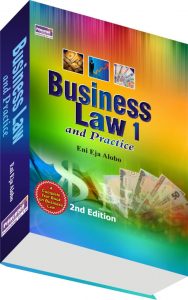
Order at legalnaija.com/shop
“It shall be lawful for any Commissioner for Oaths, Notary Public or any other person authorized by the Act to administer oaths to take any and receive the declaration of any person voluntarily making the same in the form set out in the first schedule.”
The first schedule to the Oaths Act prescribe the oath thusly-
“I do solemnly and sincerely declare that I make the solemn declaration conscientiously, believing same to be true and by virtue of the provisions of the Oaths Act.”
Affidavits and other forms of written statements on oath usually contain this declaration as prescribed in the form in the first Schedule of the Oaths Act or similar words in the last paragraph. In our instant case, the only written statement on oath that accompanied the writ of summons and statement of claim did not contain the said declaration or any words to the like effect. But the 1st respondent who made the statement stated at the beginning of the statement that he was making the deposition therein on oath and the Commissioner for Oaths endorsed at the foot of the statement that it was sworn at the Registry of the High Court at Ado-Ekiti on 22-11-2011 before him.
Since the statement was made on oath and sworn before the Commissioner of Oaths, the absence of the declaration that was made conscientiously, believing same to be true and correct or like words in the written statement on oath becomes a mere irregularity or defect as to form that has no effect on the validity of the oath and the statement on oath.”[25]
Furthermore, the Court stated that the law is that any defect as to form does not vitiate an oath made before an authorized person in law, even if there was declaration contained in the deposition. It further held:
“Generally, the law does not allow the form of an oath or affirmation to vitiate the oath or statement made under the oath or allow the absence of oath or affirmation to prevent the admissibility of evidence that should be on oath. So where a statement, such as the 1st respondent’s statement in this case, was made on oath and sworn before the Commissioner for Oaths, the absence of the declaration prescribed in the Oaths Act that the deponent made the statement conscientiously, believing same to be true and correct or like words in the written statement on oath becomes a mere irregularity or defect as to form that has no effect on the validity of the oath and the statement on oath.”[26]
More importantly, the Court held that no law precludes a witness from adopting a statement on oath even if it was not made on oath or sworn at all. The Court, at pages 158-159, paras. B-B; 168, paras. E-G, held thus: “Section 4(2) of the Oaths Act states that no irregularity in the form in which an oath or affirmation is administered or taken shall:
(a) invalidate the performance of official duties; or
(b)invalidate proceedings in any court; or
(c) render inadmissible evidence in or in respect of which an irregularity took place in any(c)proceedings.
While by section 4(3) of the Act, the failure to take an oath or make an affirmation and any irregularity as to the form of an oath or affirmation shall in no case be construed to affect the liability of a witness to state the truth. In this case, even if the 1st respondent’s written statement was not made on oath or sworn at all, it would still be valid as the witness written statement intended to be given or given as evidence on oath in the proceedings and nothing precludes the witness from adopting it as his testimony when testifying on oath in examination in chief in open court. [Anatogu v. Iweka II (1995) 8 NWLR (Pt. 415)547; Solola v. State (2005) 11 NWLR (Pt. 937) 460 Sule v. State (2017) 10 NWLR (Pt. 1628) 545 referred to; Buhari v. I.N.E.C. (2008) 4 NWLR (Pt. 1078) 546 referred to and distinguished.]”
In simpler terms, the Supreme Court might be understood to be holding in this case that the oath taken by the witness upon entering a witness box cures whatever defects as to form, that may exist in the deposition. This holding, in the writer’s view is a welcomed development as it de-emphasizes blind adherence to the dictates of procedural law at the painful expense of doing substantial justice to the parties’ dispute presented before the court. Little wonder that the Supreme Court berated the conduct of the learned trial judge who clearly in this case preoccupied himself with determining procedural issues, disguised as jurisdictional issues, whilst allowing the substantive case suffer for the eleven (11) year journey to the Supreme Court before it is being returned to the trial court for retrial before another Judge.[27]
CONCLUSION
In interrogating this question, it is heartwarming that our courts are maintaining their intolerance for technical justice, which in most cases defeats the merits of the cases before them. It is absurd, in the writer’s opinion, if in 2022, you find a witness statement of oath being held to be incompetent merely because it did not carry a paragraph of oath clause, when it was indeed deposed to before a person authorized to take oaths of that kind.
From the decision of the Court in ADEJUGBE v. ADULOJU (supra), it is settled without doubt that a witness statement on oath without an oath clause is nevertheless valid and can be competently adopted to become evidence before a Court. It however remains unclear if this principle can be stretched to include affidavits, which as has been shown earlier in this article, are fundamentally different from a witness statement on oath. Whilst it is convenient to assume that by parity of reasoning, the decision might apply, one can only hope that a suit fought on affidavit evidence (i.e., commenced by originating summons) gets up to the Supreme Court soon enough, affording the judex an opportunity to clarify the validity or otherwise of the affidavit.
The courts ought to stay true to ensuring that substantial justice triumphs over technical justice. It is the writer’s view, that no sworn declaration should at this day and age is declared void merely because an oath clause that does not belie the other contents of the document is absent.
[1]Abdulkabir Badmos, is a Senior Associate with Mahmud & Co., Abuja-Nigeria. He may be contacted via aabadmos08@gmail.com.
[2](2012) 2NWLR (PT.1284) 285 (CA) at 308 Paras B-E; Luna C.O.P. Rivers State (2018) 11 NWLR (PT.1630) 269 (SC) at 290 Para A.
[3] Section 10, Oaths Act Cap O1, LFN 2004.
[4]Ezeudu v. John (2012) 7 NWLR (PT.1298) 1 (CA) at 15 Paras A-B
[5] (2017) LPELR-42551(CA) Pp 32 – 32 Paras B – F.
[6] (2021) LPELR-56025(CA) Pp. 18 – 23 Paras C – C.
[7] (2012) 7 NWLR (PT.1298) 55 at Pp. 97-98, paras. G-A.
[8] (2021) LPELR-55610(CA) Pp 64 – 68 Paras E – E.
[9] (2010) 10 NWLR (PT.1201) 1 at P. 34, paras. B-C.
[10] NGUN v. MOBIL PRODUCING NIG UNLTD (2013) LPELR-20197(CA) Per JOSEPH TINE TUR, JCA (Pp 31 – 32 Paras C – D)
[11] (1997) 10 NWLR (PT.525) 377 at 405-406, PARAS H-B, Per ACHIKE JCA.
[12] EBITEH v. OBIKI (1992) 5 NWLR (243) 599 at 618, para H, Per ADIO JCA
[13] (2007) 7NWLR (PT. 1033) 307 at 325, para H,
[14] Federal Republic of Nigeria, 1999 (as amended)
[15] Section 4 (2) and (3) of the 1999 Constitution (as amended).
[16] CAP E14, LFN 2004.
[17] Order 2 Rule 2 (2) (c) of the High Court of the Federal Capital Territory (Civil Procedure) Rules 2018; Order 5 Rule 2 (c) of the Lagos State High Court (Civil Procedure) Rules, 2019.
[18] ONWUFUJU v. OROHWEDOR (2020) LPELR-50767(CA) Per ABIMBOLA OSARUGUE OBASEKI-ADEJUMO, JCA (Pp 35 – 39, Paras F – E)
[19] (2004) 10 NWLR (pt.881) p.394
[20] (2012) LPELR – 8033 (CA)
[21] (2017) LPELR-50170(CA) Per YARGATA BYENCHIT NIMPAR, JCA (Pp 13 – 14 Paras B – E.
[22] (2022) 3 NWLR (PT.1816) 131.
[23] (1995) 8 NWLR (Pt. 415)547.
[24] (2005) 11 NWLR (Pt. 937) 460.
[25] At page 157 PARAS B-H.
[26] At Pp. 158, para. A; 167-168, paras. H-A.
[27] Op. cit. See dictum of Agim, JSC at pages 160-162, Paras F-A.
by Legalnaija | Nov 1, 2022 | Uncategorized

In the summer of 2017, one of the best players in the world : Neymar Da Silva Santos Júnior popularly known as Neymar Jr moved from Football Club Barcelona to Ligue 1 outfit Paris – St – Germain for a record breaking sum of €222m. The news was all over the media with many fans of the sport shocked at the humongous amount that was paid for his signature. A release clause that was hitherto thought impossible to trigger had finally being paid and following the regulations laid down by the Rules on Status and Transfers of Players (RSTP), the Catalan club had to release one of their best players for that amount. The news of the money was all up in the media with a minor detail left out of the equation, the solidarity payments that was to be made to Santos : Neymar former club and trainer by Paris- St- Germain which amounted to over €9m.[1]
Solidarity payments are those that occur when a football player is still in contract but is transferred between two clubs belonging to different associations l.e a case of international transfer. Clubs pay transfer fees, and up to five percent (5 %) of this fee is withheld to be used as the solidarity payment. These payments would then be made and distributed to all clubs that trained the player between his 12th and 23rd birthdays at a proportional rate developing on how long the player was at each club. Also, when a player signs his first professional contract, there is a sort of training money known as training compensation that is paid to the club that was involved in the player’s training.These monies are divided into two different Categories by FIFA : Training compensation and Solidarity mechanisms.
These principles were introduced due to Clubs complaints to UEFA and FIFA over the Bosman ruling which gave footballers more control over their transfers and gave the Clubs less power. Players could decide to wait out their contract and transfer to other clubs and the Clubs involved in their training would not get a dime out of the fees with no hope of recouping the money spent on training these players. [2]The need to maintain Player control and also give clubs the opportunity to make profit on players training necessitated the need for Training Compensation. In FIFA circular 079, FIFA explained the reason for the Inclusion of rules guiding training compensation and Solidarity mechanism
“The new regulations create a detailed system for the payment of training compensation. This system is designed to encourage more and better training of young football players, and to create solidarity among clubs, by awarding financial compensation to clubs which have invested in training young players. At the same time, care has also been taken to ensure that the amounts of training compensation do not become disproportionate, and unduly hinder the movement of young players”
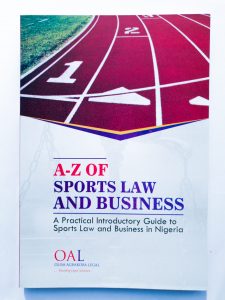
ORDER NOW
They went further to state : ” The new club concerned is to distribute 5% of this compensatory amount to all the clubs where this player has played between the age of 12 and 23. This distribution of monies is meant as a solidarity contribution to the clubs involved in the training and education of the player.”
Training Compensation
Training compensation can be paid when a player signs his first professional contract as a footballer and whenever he is transferred up until his 23rd birthday. Either a paid transfer or a free one, the training compensation is mandatory. Only exceptions are spelt out in Annexe 4, act 2 ,Section 2 :
- the former club terminates the player’s contract without just cause (without prejudice to the rights of the previous clubs); or
- the player is transferred to a category 4 club; or
- a professional reacquires amateur status on being transferred.
This exception for category 4 clubs is due to the fact that they are extremely low clubs already and it would be extremely hard to fork out enough money to serve as training compensation for any club.
In Annexe 4, art 3, Section 1. it states that once a player signs his first professional deal with a club, the Club with whom he signed the deal has to pay training compensation to every football Club/ academy who was involved in his training as a footballer within 30 days of the registration ( clubs hardly follow the 30 days rule though).
In it’s words : “On registering as a professional for the first time, the club with which the player is registered is responsible for paying training compensation within 30 days of registration to every club with which the player has previously been registered (in accordance with the players’ career history as provided in the player passport) and that has contributed to his training starting from the calendar year of his 12th birthday. The amount payable is calculated on a pro rata basis according to the period of training that the player spent with each club. In the case of subsequent transfers of the professional, training compensation will only be owed to his former club for the time he was effectively trained by that club.”
Section 3 further makes provisions for cases whereby the football club has liquidated or ceased to exist, the money is to paid to the Football Association of that country where the club is located and the money directed towards youth development in that country. For example, a player trained by the now defunct Stationary Stores Club of Lagos who has now ceased to exist, the money will then be paid to the Nigerian Football Federation (NFF) who in turn would make invest the money into youth training and development in that country.
According to Art 4 section 1, football associations are also to divide their clubs into four different categories in accordance to the clubs training investments in youth development. The pre -determined sums are supposed to resemble the amount needed to train one professional player for one year multiplied with what FIFA/RSTP calls the “player factor” l.e the ratio of players trained in order to produce a successful player. Once these club category has been set, the training compensation is calculated and gotten by multiplying the years which the selling club(s) trained and developed the player.
In 2019, FIFA in Circular No 1673 provides this chart to indicate what compensation may involve according to the respective confederation and the respective category. This chart was to be updated later.
Confederation Category I Category II Category III Category IV
AFC USD 40,000 USD 10,000 USD 2,000
CAF USD 30,000 USD 10,000 USD 2,000
CONCACAF USD 40,000 USD 10,000 USD 2,000
CONMEBOL USD 50,000 USD 30,000 USD 10,000 USD 2,000
OFC USD 30,000 USD 10,000 USD 2,000
UEFA EURO 90,000 EURO 60,000 EURO 30,000 EURO 10,000
The above chart illustrates the amount payable to these clubs under those continental federations. Worthy of note us that only UEFA and CONMEBOL clubs have Category 1 clubs.
Also, to make sure players between the age of 12 and 15 are not set at ridiculously high costs, the training compensation will be based on the training costs of Category 4 clubs. For example, if Tunde was trained from 12- 15 at a Category 2 club in Africa and then transferred to a category 1 club, it will be calculated thus : 4×2000 USD for his 12- 15 birthday and then 4× 30,000 USD Setting the total money at 128,000 USD.
Also, although there is not an obligation according to the RSTP to pay training compensation when a professional player transfers domestically, some National Football associations have transfer regulations that make training compensation payable for domestic transfers.
Solidarity mechanism.
Another way by which FIFA allows clubs to also make money from player sales and Transfers is through solidarity payments. Solidarity payments are those that occur when a football player is still in a contract but is transferred between different jurisdictions. When a player is being transferred and the transfer fees are paid, 5% of the transfer fees are held by the clubs and then distributed to all the clubs involved in his training between his 12th and 23rd birthdays at a rate depending on how long he stayed at those clubs. This is without including the training compensation paid to his club already.
This is spelt out explicitly in article 21 of the RSTP: ” when professional is transferred before the expiry of his contract, any club that has contributed to his education and training shall receive a proportion of the compensation paid to his former club (solidarity contribution). The provisions concerning solidarity contributions are set out in Annexe 5 of these regulations.
Annexe 5 of the RSTP further provides the rate of the solidarity payments as follows :
- a) Calendar year of 12th birthday: 5% of 5% of any compensation
- b) Calendar year of 13th birthday: 5% of 5% of any compensation
- c) Calendar year of 14th birthday: 5% of 5% of any compensation
- d) Calendar year of 15th birthday: 5% of 5% of any compensation
- e) Calendar year of 16th birthday: 10% of 5% of any compensation
- f) Calendar year of 17th birthday: 10% of 5% of any compensation
- g) Calendar year of 18th birthday: 10% of 5% of any compensation
- h) Calendar year of 19th birthday: 10% of 5% of any compensation
- i) Calendar year of 20th birthday: 10% of 5% of any compensation
- j) Calendar year of 21st birthday: 10% of 5% of any compensation
- k) Calendar year of 22nd birthday: 10% of 5% of any compensation
- l) Calendar year of 23rd birthday: 10% of 5% of any compensation
Just like Training compensation, Solidarity payments are obligatory when an international transfer takes place. However, football associations have regulations that also make it payable in cases of local transfers.
Also dissimilar with the training compensation, Solidarity payments does not stop and continue every time the a player is transferred either on a regular or loan basis. It is also dependent on a fee so free transfers do not count and it is only activated when a player transfers before the end of his contract for a fee. Training Compensation and Solidarity payments have helped a lot of Clubs stay afloat as it helps to bring a substantial sum of money in especially for clubs who have invested a lot in training a player and ensuring the success of his professional career.
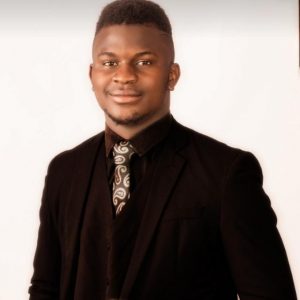 The Writer, Omole Damilare is a 200 level student of the faculty of Law, Adekunle Ajasin University, Akungba Akoko and a sports enthusiast. He can be reached via +2349020837174 or Omoledamilare093@gmail.com
The Writer, Omole Damilare is a 200 level student of the faculty of Law, Adekunle Ajasin University, Akungba Akoko and a sports enthusiast. He can be reached via +2349020837174 or Omoledamilare093@gmail.com
[1] Jonathan.J, (2017,Sep 4), PSG will pay Santos €9m in solidarity money from Neymar transfer – chief : https://www.espn.com/soccer/santos-fc/story/3204253/psg-will-pay-santos-9m-in-solidarity-money-from-neymar-transfer-president
[2] Euspen.A, ( 2022, Mar 31), Training compensation and solidarity mechanism: https://www.easportslaw.com/news/training-compensation-and-solidarity-mechanism
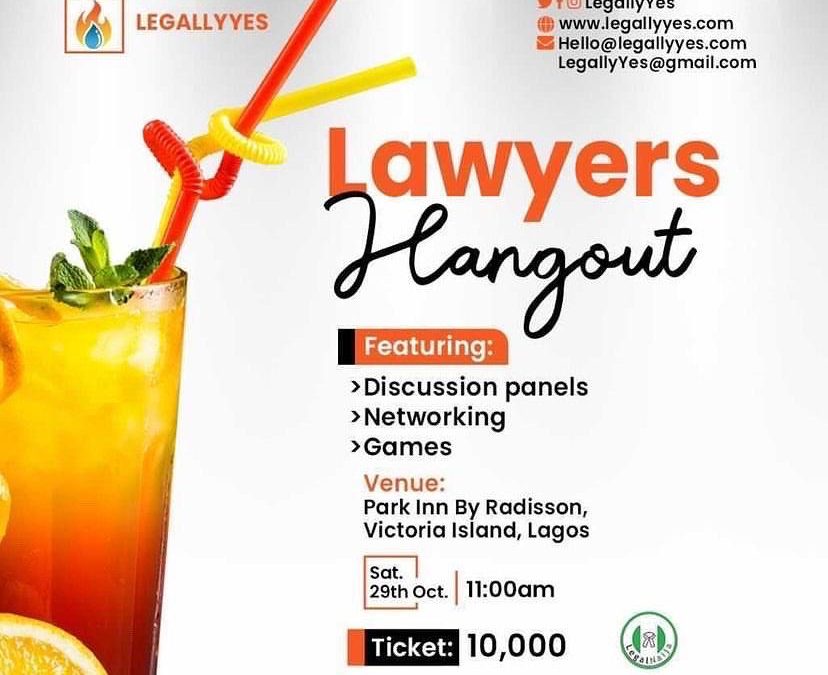
by Legalnaija | Oct 13, 2022 | Uncategorized
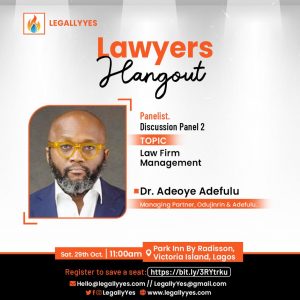
On the 29th of October, 2022 at 11.00am, a group of lawyers will be a part of an exclusive “Lawyers Hangout” holding at Park Inn by Radisson, Victoria Island Lagos.
Asides from the opportunity to network, there will be panel sessions on Law Firm Management, Technology and trends and also on content creation, some of the topics many lawyers have questions on.
A financial expert will also be available to help lawyers navigate their finances.
Other side attractions are Refreshments, Games and lots of networking activities.
To get more information on this event, visit @legallyYes on IG
Here is the link to register
Please make payment and register today on https://selar.co/z6xr to secure a seat as we have limited seats available.
Please contact +234 8149990849 for more details. (WhatsApp only ).
See you there.
Proudly sponsored by Legalnaija
See fliers below
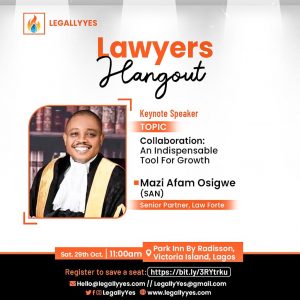

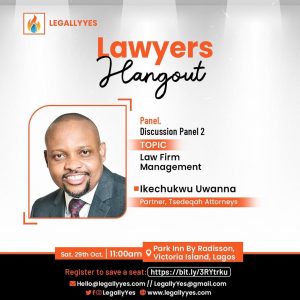
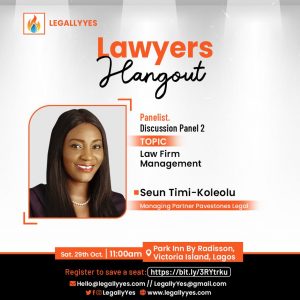
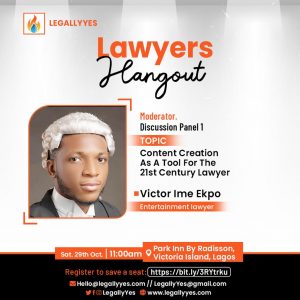
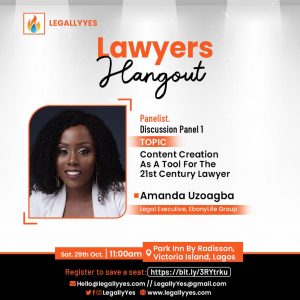
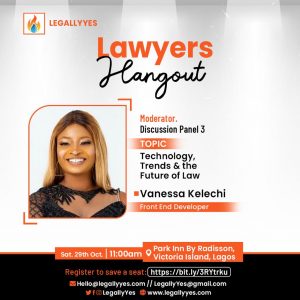
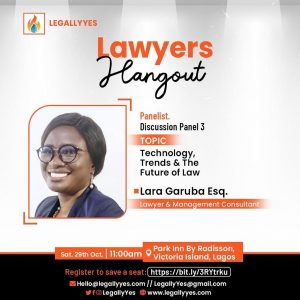
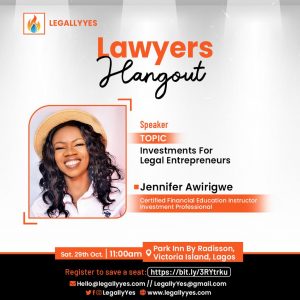
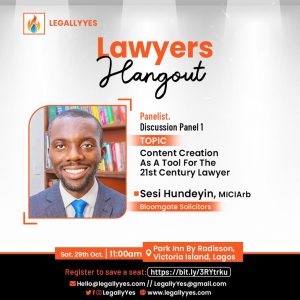










 Mosopefoluwa Fayeun is a corporate/commercial lawyer and management consultant with Albert and Abraham LLP where she regularly advises with regards strategy and corporate governance.
Mosopefoluwa Fayeun is a corporate/commercial lawyer and management consultant with Albert and Abraham LLP where she regularly advises with regards strategy and corporate governance.






 The Writer, Omole Damilare is a 200 level student of the faculty of Law, Adekunle Ajasin University, Akungba Akoko and a sports enthusiast. He can be reached via +2349020837174 or
The Writer, Omole Damilare is a 200 level student of the faculty of Law, Adekunle Ajasin University, Akungba Akoko and a sports enthusiast. He can be reached via +2349020837174 or 










